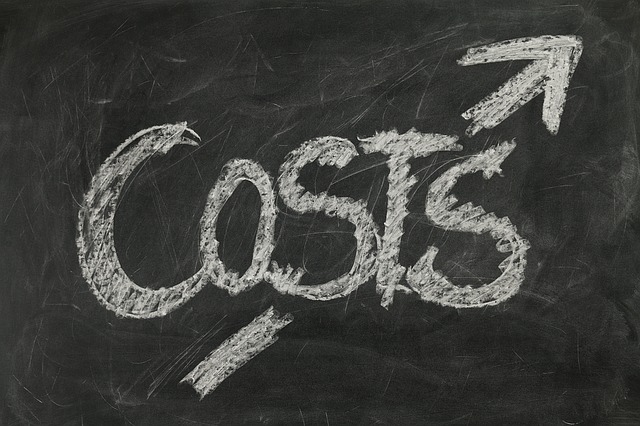What Is Financial Abuse? Three Warning Signs
Financial abuse is one of the most common forms of domestic abuse, occurring in around 98% of relationships. The abuser uses money as a weapon to manipulate and maintain power over the other person.
Moreover, financial abuse can occur in different family relationships. It can happen to anyone regardless of age, gender, race, income, education level, or job status. For example, it can happen between spouses, a parent and a minor, or between a child and an elderly parent.
This blog will discuss the warning signs of financial abuse, the most common types, the impact, and the steps you can take if you believe you are a victim of financial abuse.
Warning Signs
It isn’t unusual for spouses or family members to argue or have conflicting views about money. However, that can be resolved with open and honest communication.
But when one person controls the finances to maintain power over the other person and traps them, that can signify financial abuse. Moreover, financial abuse goes beyond solely withholding money.
Here are three warning signs of financial abuse to be aware of:
Depriving or Limiting Access to Funds, Financial Information, or Basic Needs
- Withholding money
- Prohibiting them from withdrawing money from the bank or from having credit cards
- Denying them access to family financials
- Controlling how the household income is spent
- Excluding them from household financial decisions
- Restricting basic needs, such as food, clothing, and medication
- Giving an allowance
- Demanding receipts for purchases
Preventing the Other Person from Earning Their Own Money
- Demanding that they quit their job
- Forbidding them from working or attending school
- Pressuring them to miss or be late to work often
- Accessing their benefit payments for themselves
- Ordering them to earn less
- Forcing them to work for free
Forcing Financial Actions
- Forcing them to take out loans, sign over stocks, bonds, or other property
- Forcing them to file false tax returns or fraudulent insurance claims
- Forcing them to sign a power-of-attorney, allowing the abuser to sign documents without their consent
- Forging their signature on financial documents
- Taking money out of their pension
- Selling their possessions without permission
- Forcing them to change their will
Types of Financial Abuse
As mentioned earlier, financial abuse can also occur outside of romantic relationships. Financial abuse examples include parents financially abusing their children and grown children, relatives, and caregivers abusing older adults or the elderly.
Here are the different types of financial abuse:
Financial Abuse of Spouses
The most common type of financial abuse occurs in marriage. It is when one of the spouses, regardless of gender, controls the other person’s finances, making them economically dependent or exploiting their resources.
This can include concealing financial information, limiting access to assets, controlling their ability to acquire money, and dictating how to spend family funds.
 Moreover, the US Department of Justice is providing us with research that showed that out of the 120 participants of the study, 94% experienced some form of domestic abuse, and around 79% experienced exploitative economic behaviors and employment sabotage.
Moreover, the US Department of Justice is providing us with research that showed that out of the 120 participants of the study, 94% experienced some form of domestic abuse, and around 79% experienced exploitative economic behaviors and employment sabotage.
Financial Abuse of Children
It’s natural for parents to control their minor children’s finances to help them become financially independent adults. However, it veers into financial abuse when parents take advantage of their children’s personal information and money for their own benefit.
This usually happens when parents have run out of financial options. For example, they use their children’s money or personal information to obtain funds, such as opening a credit card or taking out a loan and not paying it back.
Financial Abuse of the Elderly
Financial abuse of the elderly is another common form of abuse. The abuser takes advantage of the older person in their care who has trusted them with their finances.
This type of financial abuse includes stealing money, property, or other valuables, borrowing money without the intention to pay it back, and misusing credit cards and checks. The National Council on Aging claims that up to five million older Americans fall victim to financial abuse, with an estimated loss of $36.5 billion. Perpetrators can consist of family members, relatives, and caretakers.
The Impact of Financial Abuse
The impact of financial abuse is often devastating and can be felt long after a person has left the abusive relationship. For example, when the abuser has maxed out the survivor’s credit card and refuses to make payments, this will ruin the person’s credit and ability to find housing, purchase a vehicle, or get student loans.
Moreover, survivors often have spotty employment records and mounting legal issues caused by years of financial abuse, which may hinder their chances of finding new employment. Consequently, without access to economic resources, survivors often face unique challenges to their security and safety. This can lead many people to stay or return to the abuser due to financial stability concerns.
Steps to Take if You Believe You’re a Victim of Financial Abuse
No matter how dire your situation is, you do not have to remain in a financially abusive relationship. If you believe you’re a victim of financial abuse, the first step is to decide you want to leave the relationship. Then, remember to be cautious and proceed safely at the right time.
Here are five steps to begin to free yourself from financial abuse:
Gather Your Financial Information
If you believe you are a victim, the first step is to gather all the financial documents you have at your disposal. If it is unsafe to take the original, make copies of your financial data. This could include copies of credit cards, bank statements, joint accounts, and tax returns.
In addition, make copies of your birth certificate and Social Security card. If it is impossible to access a professional copy, taking a picture on your phone would also work.
Then, try to obtain a copy of your credit report from one of the three major credit bureaus (Equifax, Experian, and TransUnion). Finally, after gathering all the documents, store them somewhere safe, with a trusted person, or on a cloud-based platform.
Begin to Educate Yourself About Your Finances
When you have been denied from your accessing your day-to-day finances and making household decisions, you may need a stronger understanding of finances.
Therefore, before you regain control of your finances, educate yourself about managing your expenses. For example, you could start by understanding your credit score and its impact on your life. Learning how to create and stick to a budget will also be beneficial.
Protect and Build Credit
After pulling your free credit report from one of the three major credit bureaus, review all your accounts thoroughly. For example, if your abuser has opened any lines of credit or acquired additional debt under your name, you can dispute the error and place a fraud alert freeze on your account. You could also sue for identity theft when it is safe.
 If you previously shared login info with your abuser, update those passwords so they can no longer access those accounts.
If you previously shared login info with your abuser, update those passwords so they can no longer access those accounts.
In addition, if you have debt on a joint account, call the credit company and ask for your name to be removed to protect you from any future debt acquired on the account.
Set Up Independent Accounts and Start Saving Money
Set up an independent checking or savings account and set money aside in this fund. Work on collecting enough money to help you cover your projected costs of leaving the financially abusive relationship and re-establishing yourself.
If you already have a personal account, create a new one and ensure that your abuser doesn’t have access to this information.
If you have a job, you could save money from your salary. Contact your HR department and ask them to transfer a portion of your salary to your new account not to raise suspicion. If you don’t have a job, friends, family, and support organizations may be able to provide some financial assistance.
Seek Help
Leaving a financially abusive relationship, whether it is spousal financial abuse or financial abuse by family members, can be risky. Nonetheless, there are precautions you can take to minimize the danger.
First, seek help from trusted friends and family and take advantage of available resources.
For example, consider contacting the National Coalition Against Domestic Violence to benefit from the resources they offer victims of financial abuse. In addition, you could set up a meeting with a free consumer credit counseling agency for financial assistance.
Lastly, contact an attorney or legal aid agency to discuss your options if you think you are in danger. Finally, consider filing a protection or restraining order to prohibit your abuser from harassing and threatening you.
In Summary
Financial abuse comes in many forms and constitutes one person controlling another person’s finances. For example, warning signs of financial abuse include depriving or limiting the other person’s access to funds, forcing them to take specific financial actions, and preventing the other person from earning their own money.
If you believe you are a victim of financial abuse, know there is a way out of this unhealthy situation, and you will recover from it. Educate yourself and seek assistance from a family law attorney or contact the National Domestic Violence Hotline at 1-800-799-7233 for confidential aid from trained advocates.





